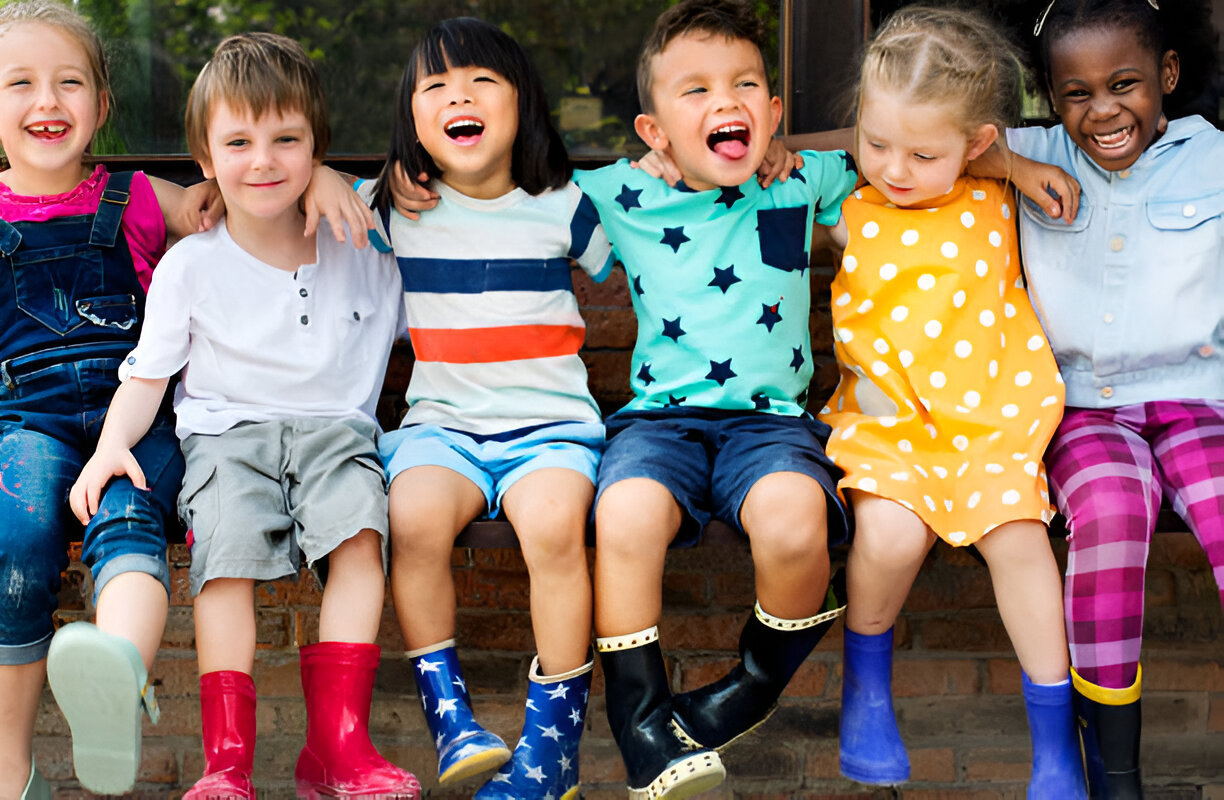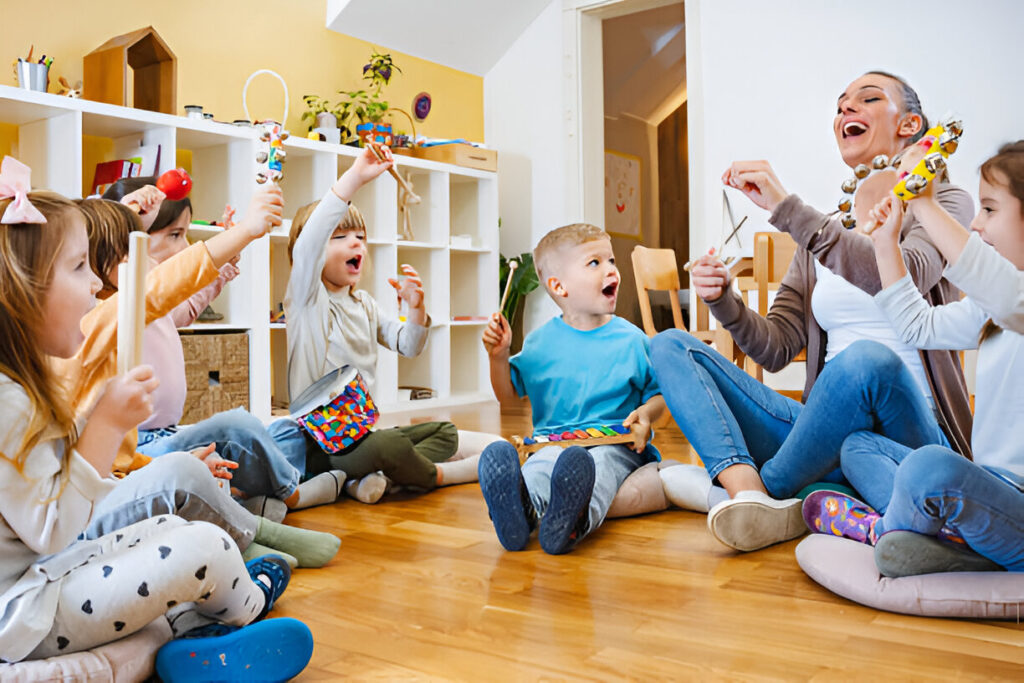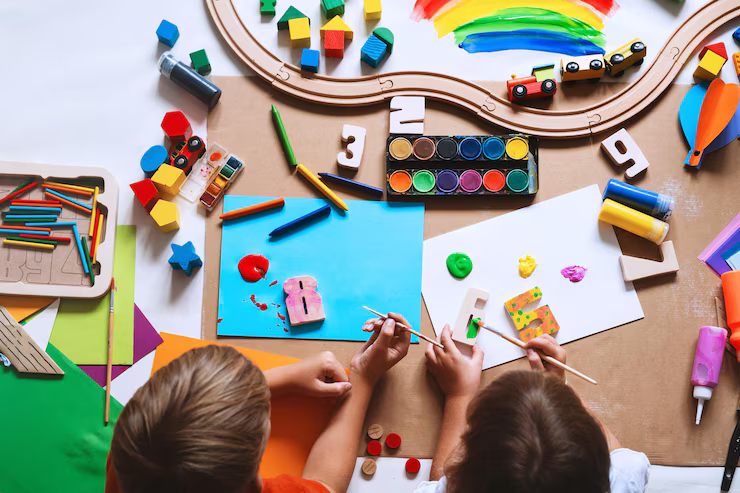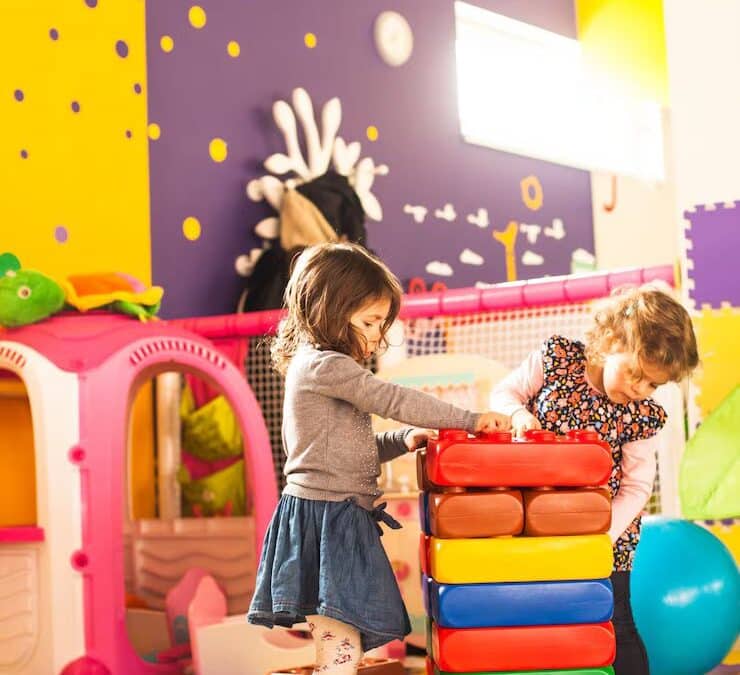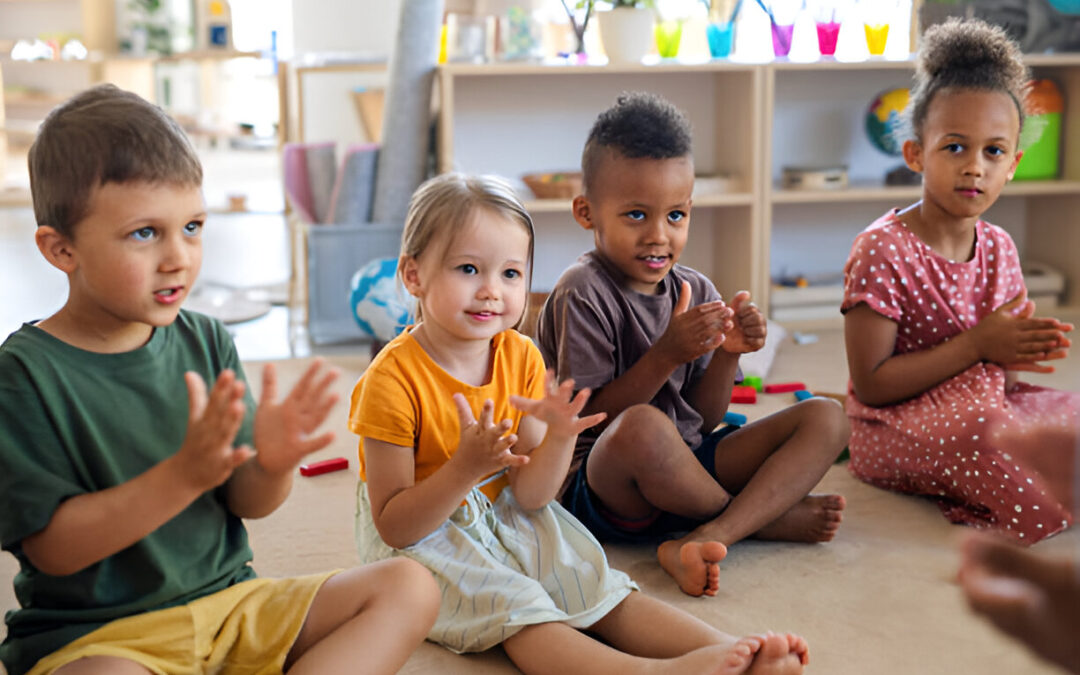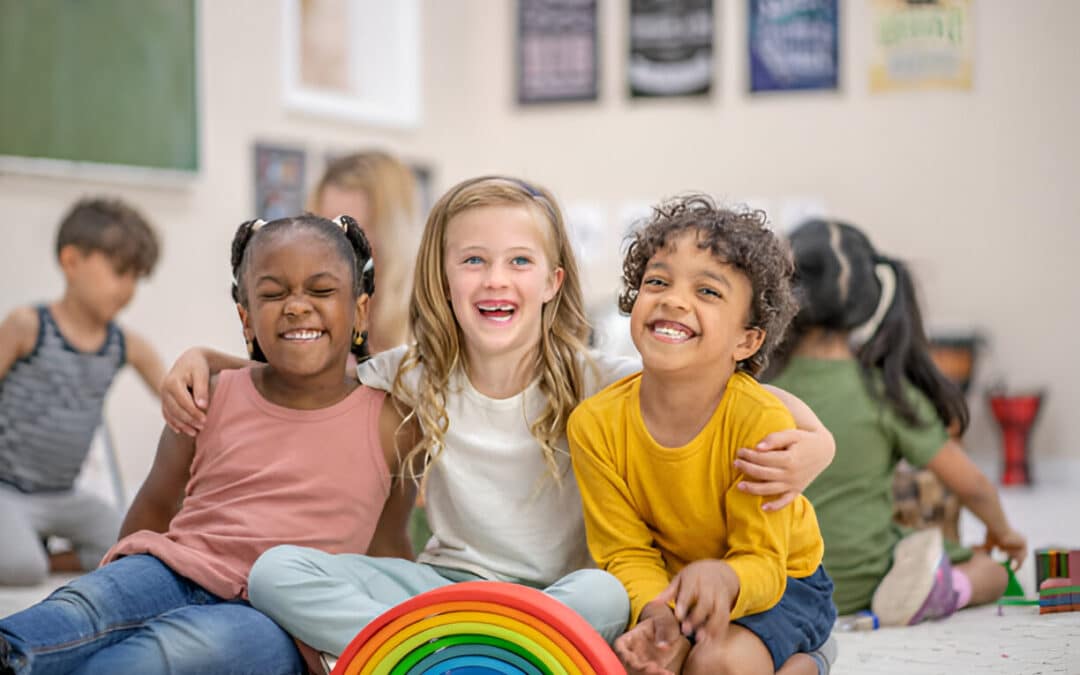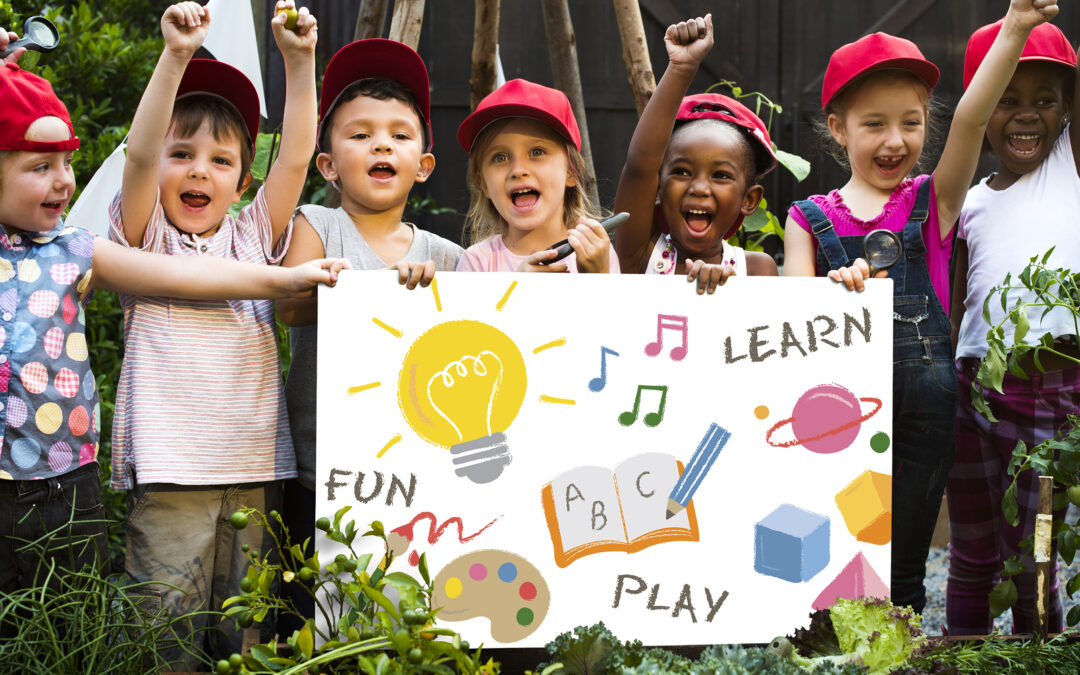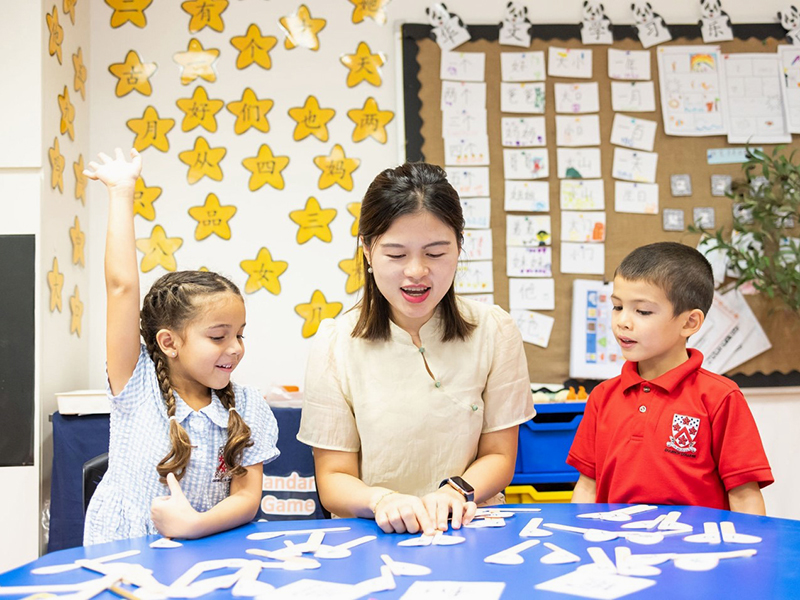School readiness refers to how prepared children are to start kindergarten. It includes a range of skills and abilities that make it easier for them to adjust to the school environment. Making sure your child is ready for kindergarten is important because it forms the basis for their academic journey and overall growth.
If you’re in Ahwatukee, AZ, and looking for an excellent pre-kindergarten program, Amici Montessori is the best choice available. They have a strong track record of helping children develop the necessary skills for a successful transition to kindergarten. Their comprehensive programs focus on nurturing each child’s unique abilities, laying a strong foundation for lifelong learning.
Apart from its exceptional kindergarten program, Amici Montessori also provides Spanish immersion kindergarten. This innovative approach offers many advantages and can greatly enrich your child’s early education experience.
Understanding School Readiness
Understanding school readiness involves recognizing the developmental skills necessary for a smooth transition to kindergarten. These skills span across various domains, ensuring that children are well-prepared not just academically, but socially and emotionally as well.
- Language Skills
Language and literacy are fundamental areas of school readiness. Children should be able to communicate effectively, understand instructions, and engage in conversations. Parents can nurture these skills by:
- Engaging in meaningful discussions
- Reading together daily
- Introducing new vocabulary through everyday activities
- Reading Readiness
Reading readiness includes recognizing letters, understanding print conventions, and developing an interest in books. Parents can support early literacy development by:
- Encouraging children to explore books
- Participating in letter-tracing activities
- Helping children recognize environmental prints like signs and labels
- Mathematics Skills
Early math skills provide a foundation for future numeracy concepts. Parents can help children grasp basic mathematical principles by:
- Counting objects
- Identifying shapes
- Playing simple problem-solving games
- Gross Motor Skills
Physical activities like running, jumping, and balancing contribute to overall physical coordination and body awareness. Parents can support the development of gross motor skills by:
- Encouraging outdoor play
- Facilitating movement exercises
- Fine Motor Skills
Fine motor control is crucial for tasks like writing and cutting in kindergarten settings. Parents can promote fine motor dexterity by:
- Engaging children in arts and crafts activities
- Practicing threading beads
- Using tweezers to pick up small objects
- Social and Emotional Skills
Social-emotional competencies include self-regulation, empathy, and cooperation. These skills are vital for forming positive peer relationships and classroom behavior. Parents can nurture these abilities by:
- Role-playing different scenarios
- Discussing emotions
- Encouraging social interactions with other children
- Self-Care Skills
Independence in self-care tasks like personal hygiene is important for promoting autonomy in young learners. Parents can help children develop self-care skills by:
- Teaching them how to manage toileting independently
- Establishing consistent routines
Focusing on these key areas ensures that your child develops a well-rounded set of skills necessary for a successful kindergarten experience.
For detailed guidance on how to prepare your child comprehensively for this transition, consider exploring resources from Amici Montessori’s comprehensive kindergarten handbook.
Understanding the multifaceted nature of school readiness helps parents create enriching environments where preschoolers can thrive across all domains of development.
For those who are considering the appropriate time to start daycare as part of their child’s developmental journey, Amici Montessori offers insights on choosing the right time for this crucial step.
- Language Skills
Strong language skills are essential for effective learning and participation in the classroom environment. These skills encompass vocabulary, communication abilities, and an interest in reading. Children with well-developed language skills can better express their needs, understand instructions, and engage with peers and teachers.
Practical Tips for Enhancing Language Skills at Home:
- Engage in Meaningful Conversations: Spend time talking with your child about their day, interests, and experiences. Ask open-ended questions to encourage them to think and respond thoughtfully.
- Read Together Daily: Read a variety of books to your child daily. Discuss the stories, characters, and illustrations to deepen comprehension and vocabulary.
- Narrate Activities: Describe what you are doing during everyday tasks. For example, while cooking, name the ingredients and actions involved.
Early literacy development is closely linked to future academic success. Cultivating a love for reading prepares children for kindergarten by enhancing their language and literacy skills. Consider incorporating:
- Storytelling Sessions: Create stories together or retell favorite tales.
- Letter Recognition Games: Use fun games like letter tracing or matching to familiarize your child with letters.
- Exploring Environmental Print: Point out and read signs, labels, and other prints found in daily life.
Fostering these skills at home builds a strong foundation for your child’s educational journey.
- Reading Readiness
Understanding the building blocks of reading readiness is essential for fostering your child’s language and literacy skills. Key components include:
- Letter Recognition: Familiarity with both uppercase and lowercase letters forms the foundation of reading. Children should be able to identify letters and associate them with their corresponding sounds.
- Print Awareness: Understanding that print carries meaning and knowing how to handle a book correctly are crucial skills. Recognizing that words are read from left to right and top to bottom helps children navigate texts.
To support your child’s emergent literacy skills, consider these engaging strategies and games:
- Exposure to Books: Regularly reading aloud to your child can ignite a love for books. Choose a variety of genres to broaden their understanding and vocabulary.
- Letter Tracing: Use sand, shaving cream, or finger paints for hands-on letter tracing activities. This not only helps with letter recognition but also enhances fine motor skills.
- Environmental Print Exploration: Encourage your child to notice and read print in their surroundings, such as signs, labels, and packaging. This reinforces the concept that print is all around us.
By incorporating these activities into daily routines, you help your child develop essential reading readiness skills that contribute significantly to their overall school readiness.
- Mathematics Skills
Early math skills are important for setting a strong foundation in understanding numbers. These skills include counting, sorting, and basic addition and subtraction. Hands-on activities can help children better understand these concepts.
Key Components of Early Math Skills:
- Counting Skills: Encourage your child to count objects around the house, such as toys or utensils. Simple counting games can make learning fun and interactive.
- Sorting and Classifying: Use everyday items like buttons or colored blocks to teach sorting by size, color, or shape. This enhances cognitive and problem-solving abilities.
- Basic Addition and Subtraction: Introduce simple math problems using tangible items like snacks or small toys. This helps children visualize mathematical operations.
The Montessori approach emphasizes the importance of play-based learning experiences in building a positive attitude towards mathematics. Using tools like counting beads or number rods can make abstract concepts more understandable for young learners.
Hands-on Math Activities:
- Number Tracing: Use sand trays or finger paints to trace numbers. This combines fine motor skills with number recognition.
- Pattern Recognition: Create patterns using everyday objects (e.g., red-blue-red-blue) and ask your child to complete them. This activity supports both cognitive development and attention to detail.
- Math Games: Board games that involve counting spaces or collecting items can enjoyably reinforce math skills.
These activities not only build essential numeracy skills but also support social-emotional development by fostering a sense of achievement and confidence in young learners.
- Gross Motor Skills
Gross motor skills are important for getting ready for school because they help with overall physical coordination and body awareness. These skills include things like running, jumping, and balancing, which are necessary for children to do well in different school activities. Being good at these things also helps with other parts of growing up, like making friends and thinking.
Fun Movement Exercises and Outdoor Play Ideas:
- Obstacle Courses: Set up simple obstacle courses using household items like pillows, chairs, and ropes. Encourage children to navigate through them by crawling, jumping, and balancing.
- Ball Games: Playing catch or kicking a ball helps improve hand-eye coordination and gross motor control.
- Hopscotch: This classic game enhances balance and coordination while also providing an opportunity for social interaction.
- Dancing: Dancing to music is a fun way to develop rhythm, balance, and muscle strength.
- Nature Walks: Take walks in different terrains such as parks or beaches to encourage climbing, running, and exploring.
These activities not only make the body stronger but also help kids learn how to get along with others. Early childhood education programs, especially ones that use the Montessori method, think it’s really important for kids to play outside and do activities that make their bodies move.”
- Fine Motor Skills
Fine motor control is essential for kindergarten tasks such as writing, cutting, and manipulating small objects. These developmental skills are critical for academic success and daily activities within the classroom.
To enhance fine motor dexterity, consider incorporating creative activities at home:
- Arts and Crafts: Encourage your child to engage in art projects that involve coloring, painting, and cutting paper.
- Threading Beads: Threading beads onto a string can improve hand-eye coordination and precision.
- Tweezers Games: Using tweezers to pick up small objects can strengthen the muscles necessary for writing.
These activities not only support fine motor development but also contribute to social-emotional development by fostering patience, focus, and a sense of achievement. Early childhood education programs like those following the Montessori approach emphasize these skills through hands-on learning and practical life activities.
Fine motor skills are a crucial part of school readiness areas, bridging cognitive learning with physical abilities. As children develop these skills, they build the foundation needed for writing tools and scissor use in more structured academic settings.
- Social and Emotional Skills
Social-emotional skills are crucial for children as they get ready for kindergarten, affecting their ability to interact positively with peers and control their emotions. Key skills include:
- Self-regulation: The ability to control one’s emotions and actions in different situations.
- Empathy: Understanding and sharing the feelings of others, which helps promote kindness.
- Cooperation: Working well with others, is an essential skill for classroom activities.
Parents can develop these skills in their children through:
- Role-playing: Act out different social situations to teach appropriate responses and behaviors.
- Emotion labeling: Help children recognize and name their emotions, improving their understanding of feelings.
- Building social connections: Arrange playdates or group activities to practice socializing.
Supporting children’s independence and self-help skills is important. Encourage them to do daily tasks like getting dressed, taking care of their things, and following instructions without always needing help. This builds their confidence and sense of responsibility as they get ready for kindergarten.
Early childhood education, especially the Montessori approach, focuses on holistic development by integrating language, cognitive, motor, and social-emotional skills. This comprehensive approach ensures children are well-prepared in all areas before starting school.
By prioritizing these social-emotional skills, you can help your child establish a strong foundation for positive relationships with peers, effective emotional control, and overall well-being during their kindergarten years.
- Self-Care Skills
Self-care skills are important for young learners to become independent and healthy. These skills include taking care of personal hygiene and being able to use the bathroom on their own, which are essential for everyday life at school.
Key Components of Self-Care Skills:
- Personal Hygiene: Teaching children how to wash their hands properly, brush their teeth, and take care of other basic hygiene tasks helps them stay healthy and develop good habits.
- Toileting Independence: Making sure that children can go to the toilet by themselves builds their confidence and reduces any worries about needing help at school.
Practical Strategies for Parents:
- Visual Schedules: Use visual tools like charts or pictures to show the steps of daily routines. This helps children understand what they need to do and do it on their own.
- Consistent Routines: Set up regular schedules for activities such as washing hands before meals or brushing teeth before bedtime. Doing these things regularly helps reinforce the habits.
Early childhood education, especially the Montessori method, focuses on developing all aspects of a child, including self-care skills, to get ready for school. Encouraging independence in these areas not only helps with physical health but also supports emotional growth by building confidence and self-control.
Teaching self-care skills at home prepares children for the structured environment of kindergarten, where they will have to do these things without constant supervision. By emphasizing these practices, we can help them be more ready for school and have a smoother transition.
Assessing Kindergarten Readiness
Assessing kindergarten readiness involves more than just evaluating academic abilities. While educators use various assessments to measure kindergarten readiness, it’s important to understand that these tests or checklists cannot fully capture a child’s preparedness.
What is Included in a Kindergarten Readiness Assessment?
Kindergarten readiness assessment tools often include:
- Observational Checklists: Teachers and parents observe children in natural settings to gauge skills like following instructions, interacting with peers, and engaging in activities.
- Standardized Tests: These may assess basic math and literacy skills but do not encompass social-emotional development or physical coordination.
- Parent and Teacher Surveys: Questionnaires that gather insights from those who know the child best.
The Limitations of Kindergarten Readiness Assessments
It’s important to consider individual differences and strengths when assessing a child’s readiness for kindergarten. Children develop at their own pace, so it is crucial to recognize that some may excel in certain areas while needing support in others.
Parents can play a significant role by observing their child’s daily activities and interactions. This holistic approach ensures that all aspects of readiness, from cognitive abilities to emotional resilience, are taken into account.
Encouragingly, environments like Amici Montessori in Ahwatukee, AZ, offer comprehensive programs designed to nurture these diverse skill sets, ensuring a well-rounded preparation for the transition to kindergarten.
Goals for Parents in Preparing Children for Kindergarten
Parents are their children’s first and most influential teachers. Your active involvement in your child’s early education sets the stage for a successful transition to kindergarten. Family involvement in education is crucial; it allows you to shape your child’s learning experiences and foster a love for learning.
To support school readiness, consider these strategies:
- Engagement in Learning
Participate in everyday activities that promote learning. Simple actions like reading together, discussing daily routines, or playing educational games can significantly enhance your child’s skills.
- Setting Realistic Goals
Establish achievable milestones for your child’s development. Whether it’s mastering basic counting or improving social interactions, setting clear objectives helps track progress and provide motivation.
- Celebrating Progress
Acknowledge and celebrate your child’s achievements. Positive reinforcement boosts confidence and encourages continued effort. A small reward or verbal praise can make a big difference.
- Creating a Rich Learning Environment
Surround your child with books, puzzles, art supplies, and other educational materials. Creating an environment that stimulates curiosity and exploration promotes continuous learning.
By incorporating these parenting strategies, you help build a strong foundation for your child’s future academic success. Engaging meaningfully in your child’s educational journey fosters not only skills but also a positive attitude toward learning.
Strategies for Successful Transition from Preschool to Kindergarten
Transitioning Strategies
Facilitating a smooth transition into kindergarten requires thoughtful planning and proactive steps. Consider these practical tips:
- Visit the New School: Familiarize your child with their new environment by visiting the school together. This helps reduce anxiety and builds excitement.
- Establish Routines: Consistent routines provide a sense of security. Start practicing school-day routines, such as set wake-up times, meal schedules, and bedtime practices.
- Foster Relationships with Teachers: Encourage your child to meet their new teacher before school starts. Building a positive rapport early on can ease the transition.
Educator Support
Educators play a crucial role in supporting children during this transition. Effective communication between parents and teachers enhances this support:
- Share Insights About Your Child: Provide teachers with information about your child’s strengths, interests, and any specific needs. This helps educators tailor their approach to better support your child.
- Involve Teachers in Transition Plans: Discuss your child’s transition plan with their future teacher. Collaboration ensures that the strategies align with both home and school environments.
- Stay Engaged: Regularly communicate with teachers through parent-teacher meetings or informal check-ins. Being actively involved in your child’s education fosters a supportive learning environment.
By implementing these transitioning strategies and leveraging educator support, you can help ensure a seamless move from preschool to kindergarten for your child.
Socioeconomic Factors Affecting School Readiness
How Socioeconomic Status Affects Education
Socioeconomic factors can significantly influence children’s access to resources and opportunities that contribute to school readiness. Families with limited financial means may struggle to provide educational materials, quality childcare, or enriching extracurricular activities. This disparity often leads to gaps in key developmental areas, such as language skills and early literacy.
Key areas affected by socioeconomic status include:
- Access to Quality Preschool Programs: Children from higher-income families are more likely to attend high-quality preschools that offer structured learning environments and skilled educators.
- Availability of Learning Materials: Books, educational toys, and technology are often scarce in low-income households, limiting children’s exposure to early learning experiences.
- Health and Nutrition: Proper nutrition is crucial for cognitive development. Children from disadvantaged backgrounds may face food insecurity, affecting their ability to concentrate and learn effectively.
The Importance of Fair Early Childhood Policies
Addressing these disparities requires fair early childhood policies and interventions. Ensuring all children have an equal chance to succeed in kindergarten involves:
- Investing in Public Preschools: Government funding for public preschool programs can provide high-quality education regardless of a family’s income.
- Community Support Programs: Initiatives like free book distributions and nutritional assistance can help bridge the gap for underserved communities.
- Parental Engagement Resources: Offering workshops and resources for parents can empower them to support their child’s development at home despite economic challenges.
Creating a level playing field means recognizing these socioeconomic impacts and working towards inclusive solutions that benefit all children.
Conclusion
Early childhood education programs play a crucial role in preparing children for school. They focus on developing various aspects of a child’s growth, including academic skills, social-emotional development, and physical well-being.
Parents can refer to the ultimate readiness checklist provided as a helpful tool in assessing their child’s progress. It is important to remember that every child develops at their own pace and may have unique strengths that contribute to their overall readiness for kindergarten.
Amici Montessori, recognized as the best pre-kindergarten in Ahwatukee, AZ, offers a nurturing environment where children thrive. The renowned Montessori method fosters holistic school readiness, ensuring children are well-prepared for their educational journey.

